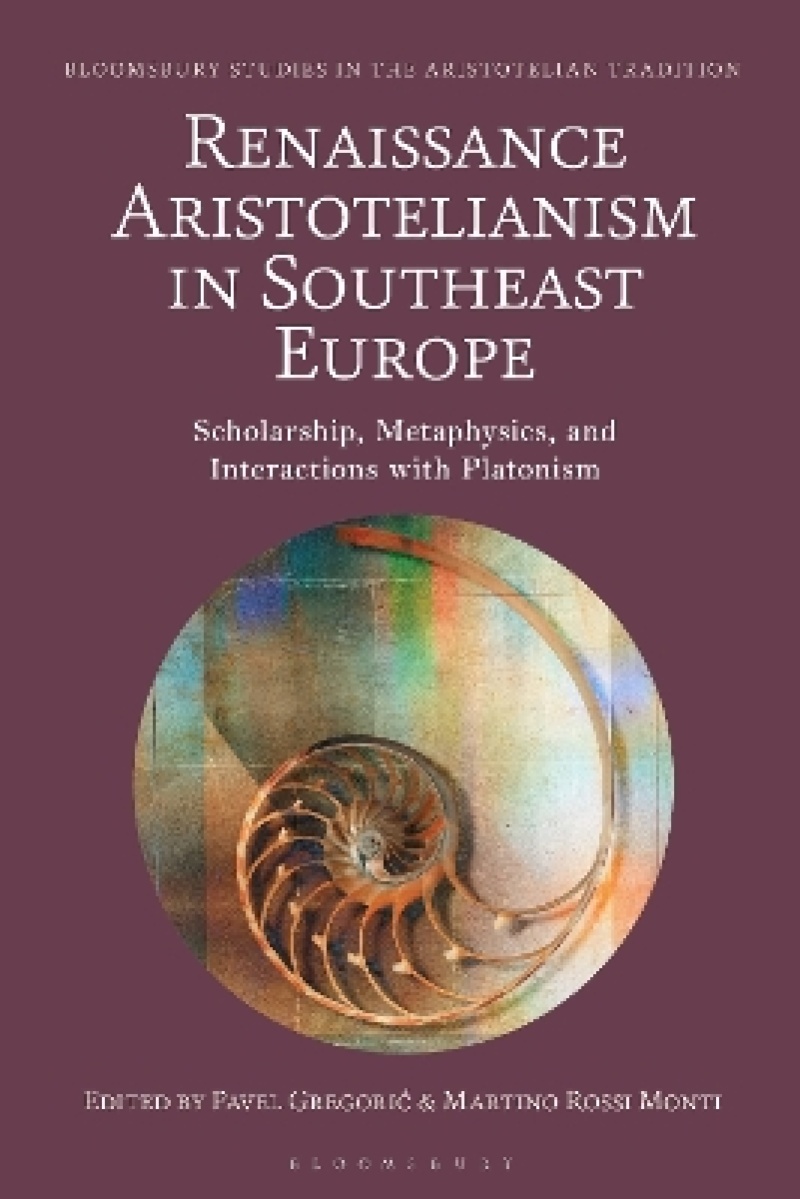<i>Historians of Renaissance philosophy have recently shifted their attention from the intellectual activity of the ‘centers’ to that of the ‘peripheries’. This volume offers a fresh and fascinating perspective on the rich philosophical output in Southeast Europe.</i>
- Luca Blanchi, Professor of Medieval philosophy, University of Milan, Italy,
<i>Renaissance Aristotelianism in Southeast Europe</i> offers a fresh perspective on the reception of Aristotle, significantly expanding the physical, cultural, and linguistic geography of a phenomenon that forms the foundation of modern European thought. By bringing together contributions on a range of topics, this edited volume sheds light on previously overlooked case studies that challenge scholarly assumptions about the relationship between centers and peripheries.
- Eugenio Refini, Department Chair and Professor of Italian, New York University, USA,
In this volume, leading scholars explore aspects of Renaissance Aristotelianism in the overlooked region of Southeast Europe.
Uncovering forgotten texts, neglected topics, and little-known authors, ten chapters examine the philosophies and scholarly practices of figures including Antonio Zara, Nikola Vitov Gucetic (Nicolaus Viti Gozzius), Matija Frkic (Matthaeus Ferchius), Juraj Dubrovcanin (Georgius Raguseius), and Daniel Furlanus.
The volume is organized into three sections. ‘Scholarship’ explores various aspects of accumulation, organization, and the display of knowledge typical for the Renaissance period. ‘Metaphysics’ looks at Aristotelian cosmological theories and doctrines, as well as exceptions to the general demise of metaphysics as a discipline in the Renaissance. ‘Interactions with Platonism’ provides different angles on how Renaissance philosophers handled the authority and the intellectual legacy of the two towering figures, Plato and Aristotle. In so doing, this volume provides insight into a number of topics central to Renaissance Aristotelianism in general.
Beginning with an Editors’ Introduction offering vital context to the differing interpretations of Aristotelianism at the time, as well as a brief history of the areas in focus, this is an essential resource for anyone wanting to broaden their understanding of Renaissance Aristotelianism beyond the oft-examined cultural centres of Western Europe.
Introduction, Pavel Gregoric and Martino Rossi Monti (Institute of Philosophy,Zagreb, Croatia)
SCHOLARSHIP
1. From Humanist to Encyclopaedic Knowledge: Antonio Zara’s ‘Anatomia ingeniorum et scientiarum’, Paul Richard Blum (Loyola University Maryland, USA / )
2. Vera scientia prognosticandi: Federik Grisogono and Medical Astrology in Dalmatia, Ivana Skuhala Karasman (Institute of Philosophy, Zagreb, Croatia)
3. Philology, observation, and medicine in Daniel Furlanus’ commentary on Theophrastus’ ‘De ventis’, Craig Martin (University of Venice, Italy)
4. Too much to quote: the management of sources in Nikola Vitov Gucetic’s ‘Commentary on the first book of Aristotle’s Rhetoric’, Gorana Stepanic (University of Pula, Croatia)
5. Matej Frkic and his Enemies, Eva del Soldato (University of Pennsylvania, USA)
METAPHYSICS
6. Vernacular Metaphysics in Renaissance Ragusa, Marco Sgarbi (University of Venice, Italy)
7. The Organistic Cosmological Theory of Antun Medo, Pavel Gregoric (Institute of Philosophy, Zagreb, Croatia)
8. Self-defence of Aristotelianism at the turn of the seventeenth century: Juraj Dubrovcanin and Matej Frkic, Mihaela
Girardi Karšulin (Institute of Philosophy, Zagreb, Croatia)
INTERACTIONS WITH PLATONISM
9. Aristotelianism and Platonism in Nikola Vitov Gucetic’s ‘Dialogo della bellezza’ and ‘Dialogo d’amore’, Maiko Favaro (University of Rome – Sapienza, Italy)
10. Petric’s Nemesis: Aristotle or the Aristotelians?, Luka Boršic (Institute of Philosophy, Zagreb, Croatia)
Bibliography
Index
Aristotle’s influence throughout the history of philosophical thought has been immense and in recent years the study of Aristotelian philosophy has enjoyed a revival. However, Aristotelianism remains an incredibly polysemous concept, encapsulating many, often conflicting, definitions. 'Bloomsbury Studies in the Aristotelian Tradition' responds to this need to define Aristotelianism and give rise to a clear characterisation.
Investigating the influence and reception of Aristotle’s thought from classical antiquity to contemporary philosophy from a wide range of perspectives, this series aims to reconstruct how philosophers have become acquainted with the tradition. The books in this series go beyond simply ascertaining that there are Aristotelian doctrines within the works of various thinkers in the history of philosophy, but seek to understand how they have received and elaborated Aristotle’s thought, developing concepts into ideas that have become independent of him.
'Bloomsbury Studies in the Aristotelian Tradition' promotes new approaches to Aristotelian philosophy and its history. Giving special attention to the use of interdisciplinary methods and insights, books in this series will appeal to scholars working in the fields of philosophy, history and cultural studies.
To find information about how to submit a book proposal, please see: http://www.bloomsbury.com/uk/academic/for-authors/submit-a-book-proposal/
Produktdetaljer
Biographical note
Pavel Gregoric is Senior Research Fellow at the Institute of Philosophy in Zagreb, Croatia. He is the co-editor of two critical editions of Nikola Vitov Gucetic’s commentaries on Aristotle (Brill 2023, Brepols 2024). From 2018 to 2023 he led the research project “Croatian Renaissance Aristotelianism”, financed by the Croatian Science Foundation.
Martino Rossi Monti is Research Associate at the Institute of Philosophy in Zagreb, Croatia. He has published several essays on Renaissance philosophy and culture.
